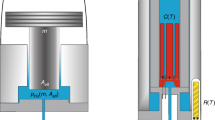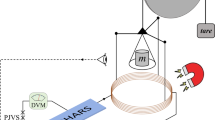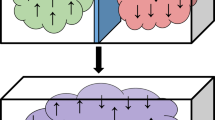Abstract
ALTHOUGH numberless accounts have appeared of the precautions necessary in the obtaining of high vacua, some serious workers seem still to imagine that they can reach “a perfect vacuum” or “a pressure of 0·001 mm.” in an apparatus from which absorbed water has not been removed. The lingering of this ancient superstition is due to the prevalence of the McLeod gauge; if any gauge which indicates vapours as well as permanent gases had been in general use, it could never have arisen. Historians may dispute whether the invention of the McLeod gauge has advanced or retarded the development of science; but there is no doubt that to-day, though it may have special uses (such as the calibration of other gauges) under rigidly controlled conditions, it is usually a mere relic of the past.
This is a preview of subscription content, access via your institution
Access options
Subscribe to this journal
Receive 51 print issues and online access
$199.00 per year
only $3.90 per issue
Buy this article
- Purchase on Springer Link
- Instant access to full article PDF
Prices may be subject to local taxes which are calculated during checkout
Similar content being viewed by others
Author information
Authors and Affiliations
Rights and permissions
About this article
Cite this article
CAMPBELL, N., DUDDING, B. & RYDE, J. A Substitute for the McLeod Gauge. Nature 112, 651–652 (1923). https://doi.org/10.1038/112651b0
Issue Date:
DOI: https://doi.org/10.1038/112651b0
Comments
By submitting a comment you agree to abide by our Terms and Community Guidelines. If you find something abusive or that does not comply with our terms or guidelines please flag it as inappropriate.



